Top 10 Best AI Tools for Systematic Literature Review in 2026 (Free + Paid)
The academic world in 2026 faced a major problem: too many papers, and too little time.
However, in recent times, some of the best AI tools for systematic literature review have changed everything about literature review. These AIs don't just find papers – they understand them.
From detecting research trends before they go mainstream to spotting contradictions across studies that humans might miss. These aren't glorified search engines or citation counters. They are like a complete pack assisting in different areas of the systematic literature review.
So let's get into the list of Best AI Tools for systematic literature review and find the best tool for your needs.
Best AI Tools for Systematic Literature Review at a Glance
Elephas: Best for researchers needing offline access and secure local storage of research papers with AI-powered analysis.
Scite.ai: Best for understanding how research papers have been supported or contested through citation analysis.
Rayyan: Best for systematic reviews requiring efficient screening of large paper datasets with automatic duplicate detection.
ResearchRabbit: Best for visual exploration of research landscapes through citation mapping and author networks.
Consensus: Best for quick comprehension of research findings through AI-powered summaries across 200M+ papers.
ConnectedPapers: Best for visualizing research relationships and identifying seminal papers through interactive citation maps.
Inciteful: Best for discovering relevant papers through citation network analysis using link prediction algorithms.
SemanticScholar: Best for intelligent semantic search with AI-powered summaries and citation impact analysis.
Undermind: Best for rapid research synthesis and discovery using AI to process hundreds of papers simultaneously.
R Discovery: Best for comprehensive research search across 250M+ papers with AI summaries and audio conversion features.
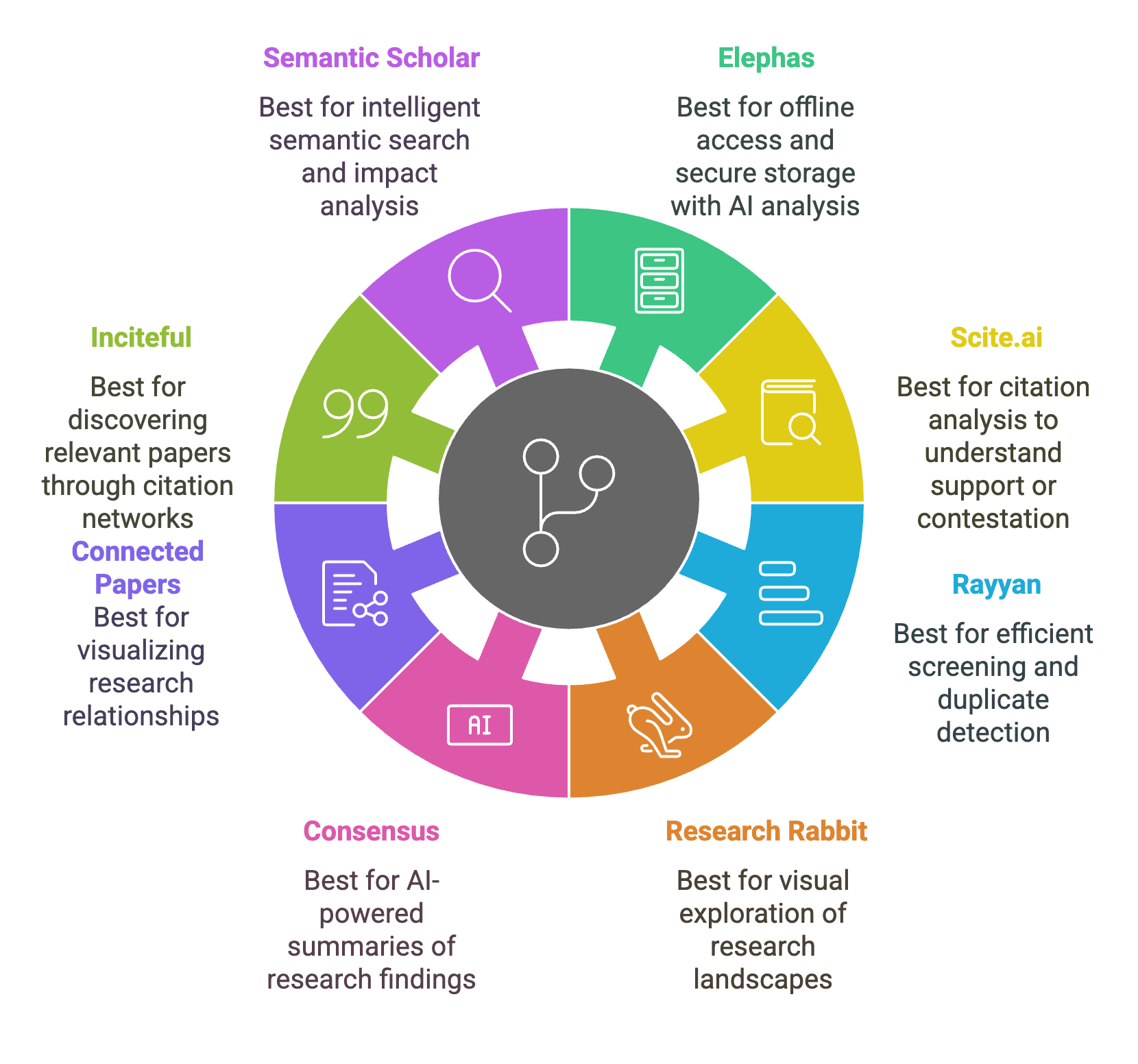
1. Elephas
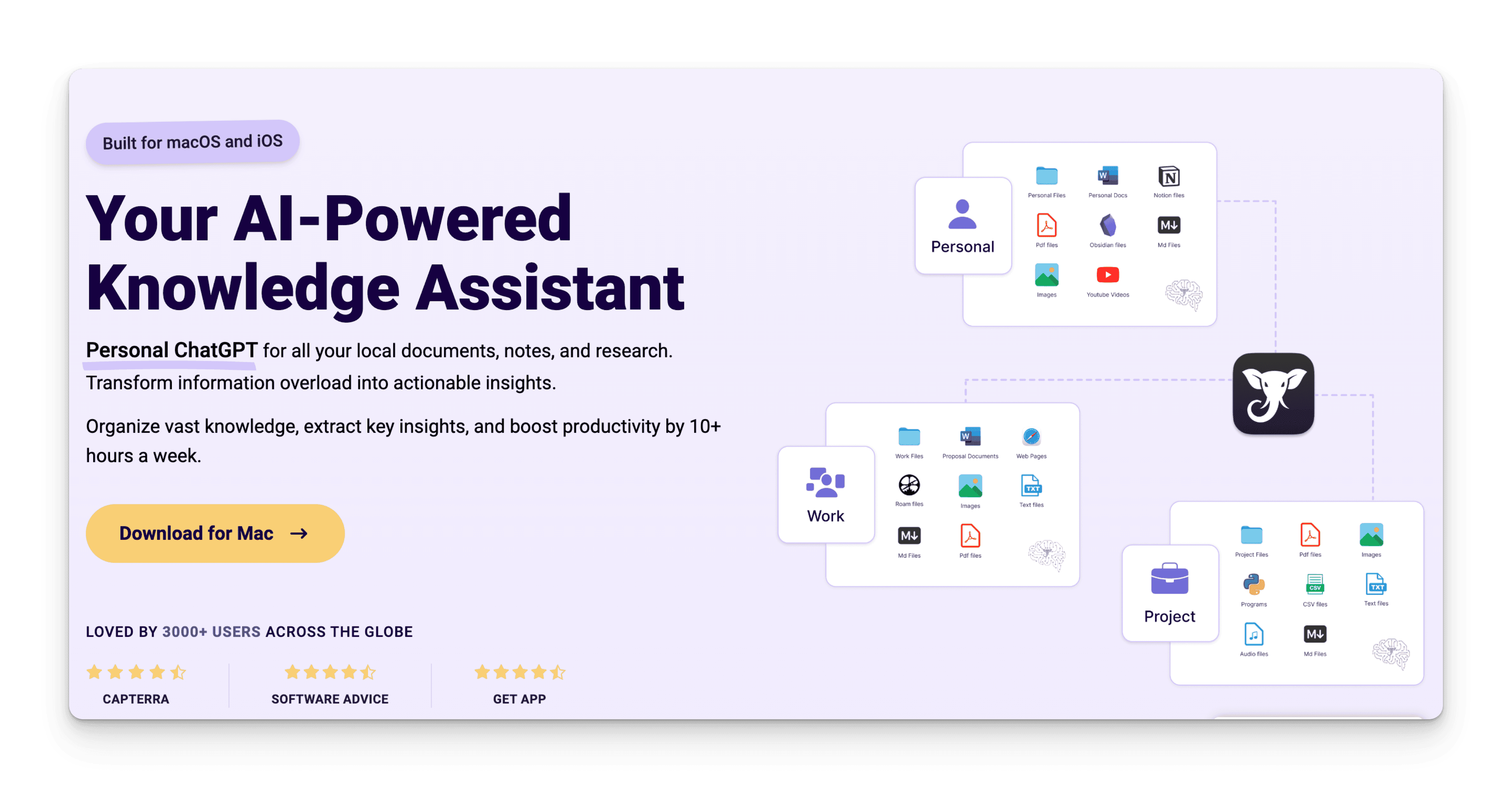
Elephas stands out with its powerful Super Brain feature that helps you manage extensive research materials.
You can easily organize your papers, extract key information, and maintain a structured approach to your literature review.
The tool's ability to handle various file formats and provide offline access makes it particularly valuable for researchers who need to work with sensitive academic materials.
The Notes feature lets you capture important findings and insights as you review different papers, while the web search integration helps you quickly verify references and find additional sources.
This combination of features makes Elephas one of the best AI tools for systematic literature review, especially when you need to maintain a well-organized research workflow.
Pros:
Super Brain stores and indexes all your research papers for quick retrieval
Offline availability ensures the secure handling of research documents
Multi-AI model support provides diverse analysis perspectives of papers
The notes feature helps capture key findings while reviewing papers
Web search integration speeds up reference checking and citation verification
The chat export feature preserves your paper analysis in various formats
Auto-sync keeps your literature database updated across devices
Local embeddings ensure private and secure research data handling
Cons:
Limited to Mac users only
Pricing: Starts at $8.99/month
2. Scite.ai
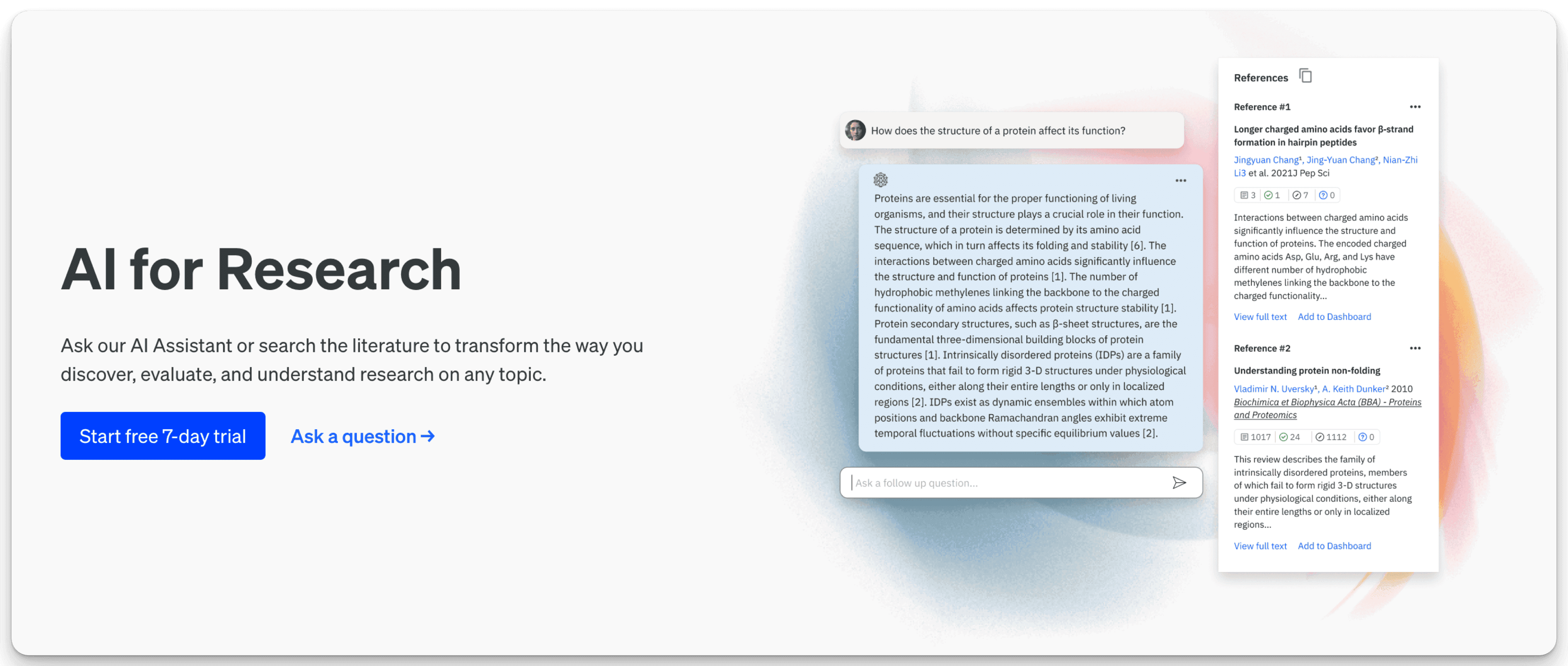
Scite.ai stands out with its powerful citation analysis features that help you evaluate research quality and relevance. Scite can help you in examine how papers have been cited by others, whether they've been supported, contrasted, or just mentioned in subsequent research. You can quickly understand the impact and reliability of papers by seeing how other researchers have engaged with them
The advanced search features let you discover relevant papers and understand their reception in the field, while the dashboard functionality helps you stay updated on new citations and developments. With citation chaining capabilities, you can trace the evolution of ideas and find connected research, making it easier to build a comprehensive understanding of your research area.
Pros:
Smart citation classification shows how papers are supported or contested
Advanced search helps find relevant research papers quickly
The dashboard feature tracks new citations and research developments
Citation chaining reveals connected research papers efficiently
Real-time updates on new citations to tracked papers
Co-citation analysis discovers related research automatically
Cons:
The learning curve for new users
Limited to papers with digital citations
There may have gaps in older research papers
Pricing: $5/month
3. Rayyan
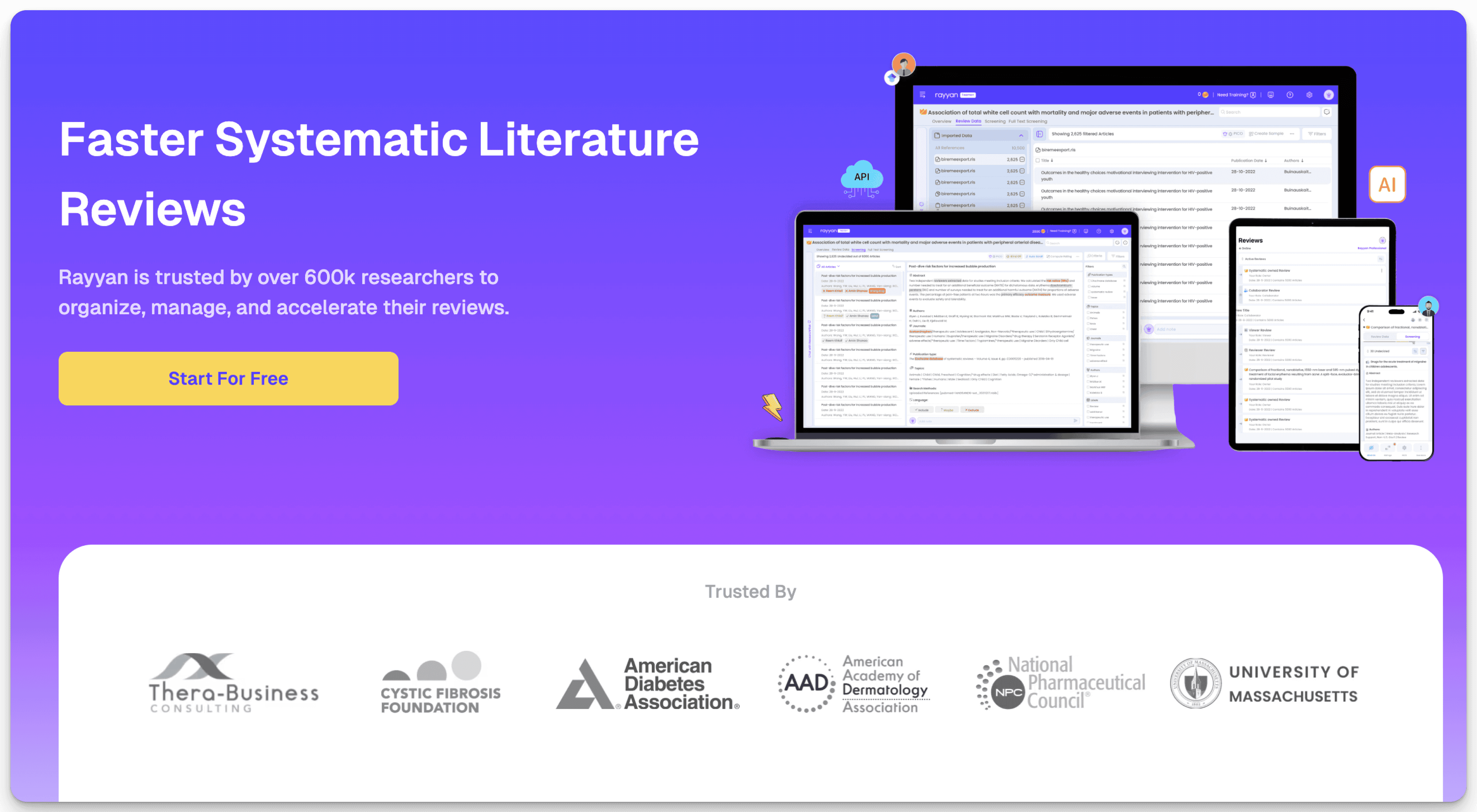
When tackling systematic literature reviews, Rayyan can help you as a dedicated screening assistant, making the process more efficient and organized. This web-based tool specializes in helping you manage large datasets of research papers across multiple databases, offering intuitive features for duplicate detection and study selection.
The platform's ability to automatically detect duplicate studies across different databases ensures accuracy in your review process. The customizable tagging system with keyboard shortcuts helps you quickly categorize studies based on inclusion and exclusion criteria, while the PRISMA flow diagram generation simplifies your documentation process.
Pros:
PICO filter highlights relevant keywords automatically in studies
Automatic duplicate detection across multiple databases
Automatic PRISMA diagram generation for review documentation
Flexible tagging system for inclusion/exclusion criteria
Quick dataset organization from different sources
Multi-user collaboration features for team reviews
Simple export options for review results
Cons:
Learning curve for advanced features
Limited customization for some filtering options
Pricing: $8.33/month
4. Research Rabbit

When conducting systematic literature reviews, Research Rabbit helps you discover related research through visual citation mapping and author networks. This free web-based tool transforms how you explore research landscapes by using "seed papers" as starting points, creating visual connections between related studies, and helping you identify key authors and papers within your field.
Research Rabbit has a intuitive visual interface that maps relationships between research papers. The platform's ability to connect to reference management tools like Zotero while providing visual citation networks helps you understand the broader context of your research area. You can easily track influential authors and papers in your field, making it simpler to build a comprehensive literature review.
Pros:
Visual mapping shows connections between research papers
Free access to all features
Integration with Zotero for reference management
Author network visualization reveals key researchers
Citation pattern analysis finds related papers
Automatic paper recommendations based on interests
Cons:
Steep learning curve for new users
Interface can become cluttered with multiple windows
Limited mobile optimization
Some search features may malfunction
Pricing: Free to use
5. Consensus
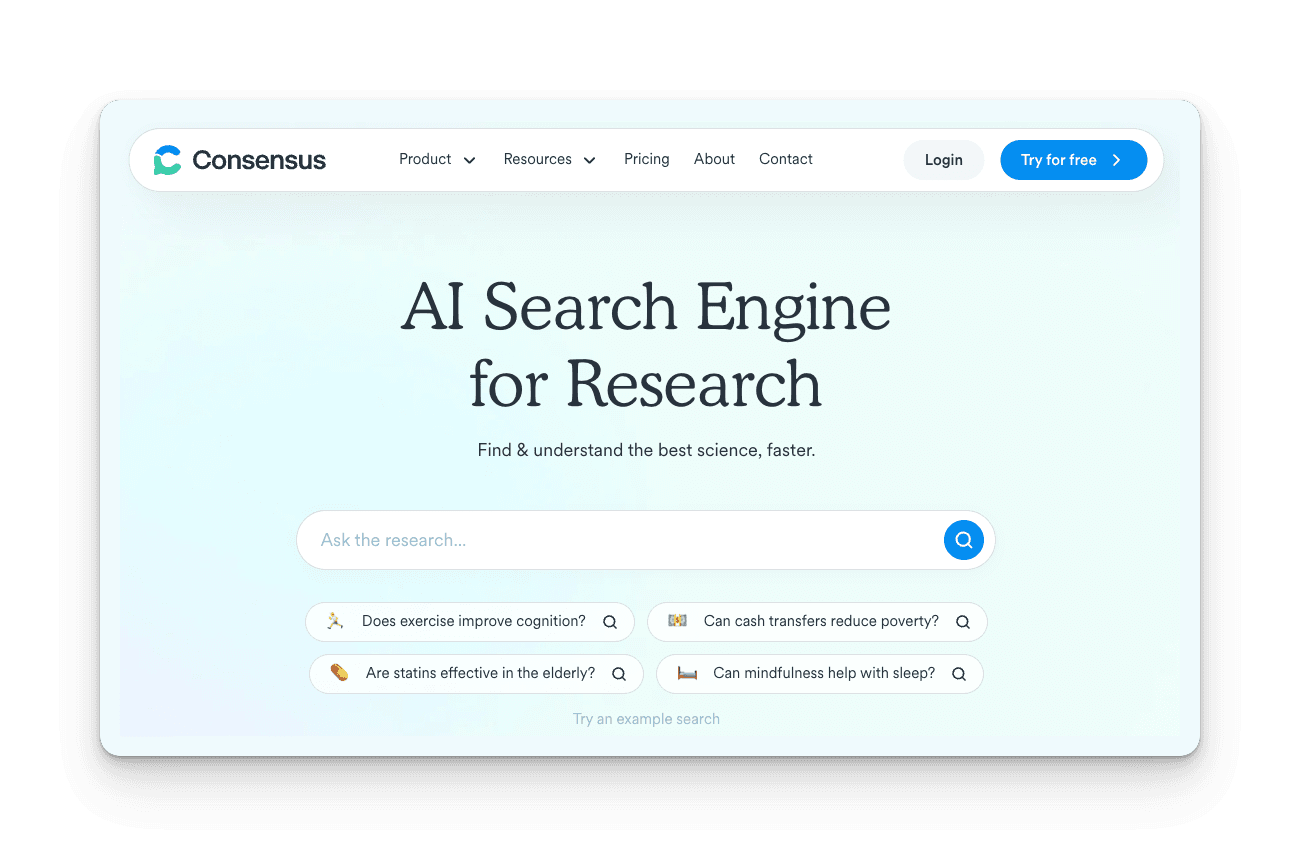
Consensus stands out with its ability to help you comprehend research findings faster through AI-powered summaries and analysis. The platform's search filters for sample size, study design, and methodology enable you to find the most relevant papers efficiently.
Consensus can basically act as an intelligent research assistant with access to over 200M research papers. This AI search engine helps you find, analyze, and understand scientific literature across all academic domains. Its specialized features like Pro Analysis and Consensus Meter help you gain quick insights from research papers while maintaining direct connections to original sources.
Pros:
AI-powered paper summaries save time in literature review
Advanced filters help find specific study types and designs
Study snapshots provide quick methodology overview
Direct links to original research papers ensure accuracy
Ask Paper feature enables detailed paper exploration
Comprehensive coverage across scientific domains
Cons:
Learning curve for advanced features
Limited to published research papers
Pricing: $8.99/month
6. Connected Papers
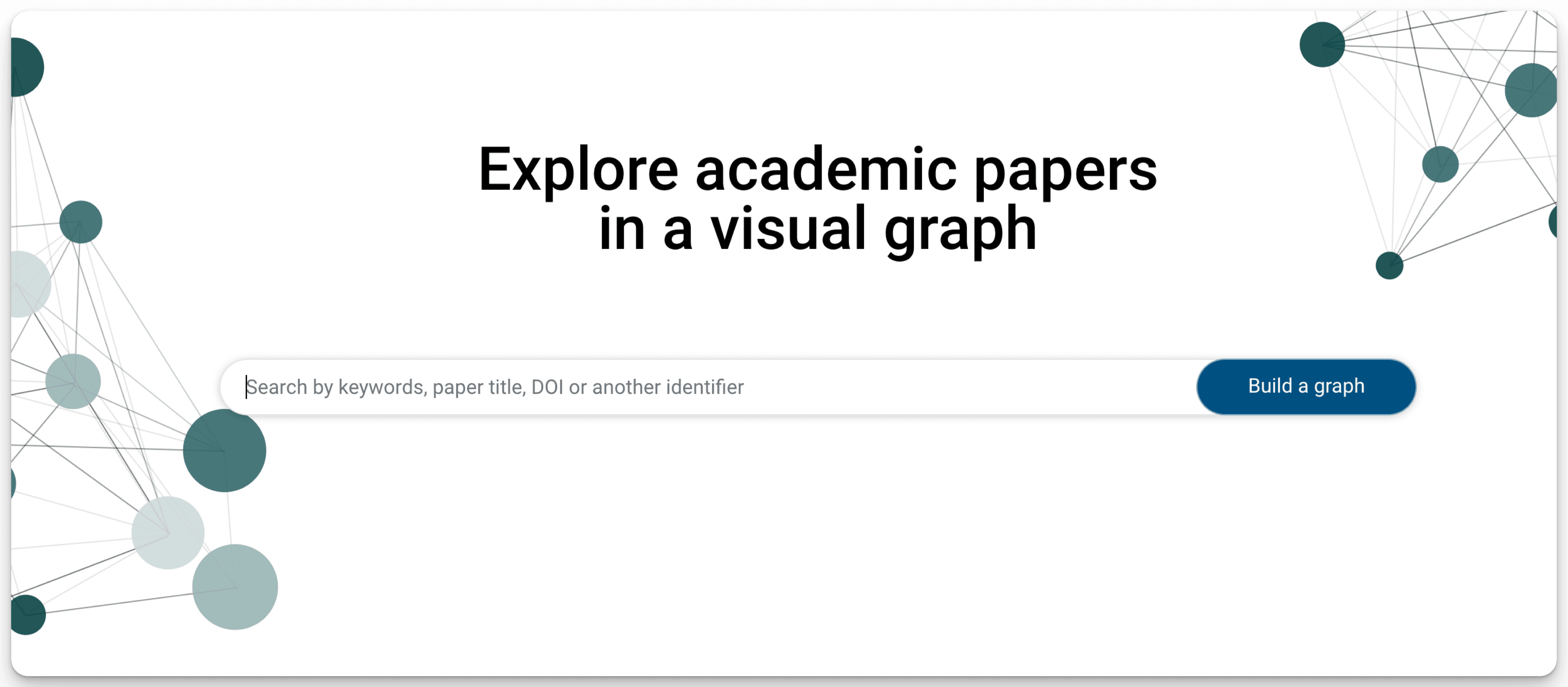
Connected Papers stands out with its intuitive visualization system that helps you understand the broader research landscape. The platform generates comprehensive maps showing connections between papers based on citation patterns and content similarity making it a good AI research assistant.
The annotation features let you add notes and highlights to papers directly on the visualization map, while the collaboration tools enable you to share your research maps with colleagues. This combination of visual exploration and collaborative features makes it easier to organize your literature review and identify important patterns in your research field.
Pros:
Visual mapping reveals hidden connections between papers
Interactive interface helps explore related research easily
Annotation system for organizing research notes
Collaborative features for team research projects
Natural language processing identifies relevant papers
Citation pattern analysis shows research evolution
Easy paper discovery beyond keyword searches
Cons:
Limited to digitally available papers
The learning curve for visualization interface
Coverage may vary by research field
Pricing: $3/month
7. Incietful
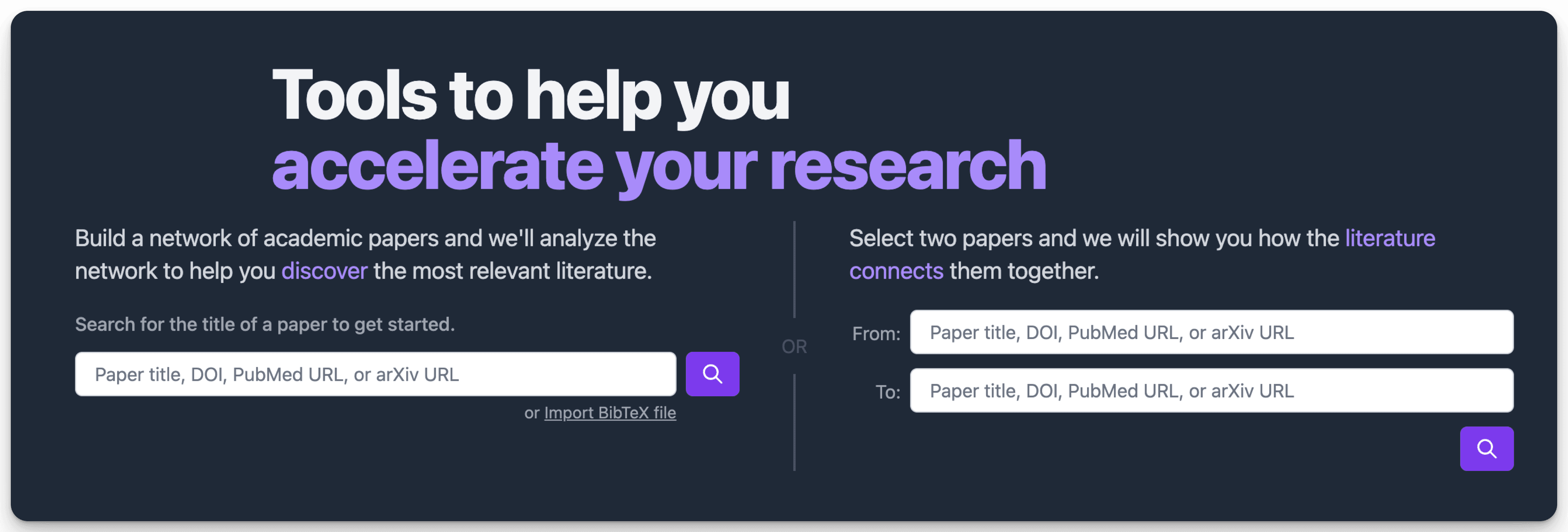
When conducting systematic literature reviews, Inciteful helps in the research process by analysing citation networks to help you find relevant papers. It builds interconnected networks of academic papers based on your initial selections, analyzing citation patterns to discover the most relevant literature for your review.
Inciteful stands out with its unique approach to literature discovery through citation network analysis. Instead of relying solely on citation counts or keyword matching, the platform examines the underlying structure of citations to help you find more recent and relevant research.
Pros:
Citation network analysis reveals hidden paper connections
Link prediction algorithms find similar research efficiently
Custom network building based on your selected papers
SQL interface for advanced data querying
Easy BibTeX file import and export
Focus on recent literature discovery
Cons:
Requires initial paper selection to start
Limited to papers with digital citations
Network analysis may take time for large datasets
Pricing: Free to use
8. Semantic Scholar

When conducting systematic literature reviews, Semantic Scholar can be an intelligent research companion, using AI to help you navigate through vast amounts of academic literature. Semantic Scholar helps with more than simple keyword matching by understanding the semantic meaning behind your searches to deliver more relevant results.
The platform's TLDR (Too Long, Didn't Read) feature provides quick paper summaries, while its citation network analysis helps you trace the evolution of research ideas. These features, combined with field-specific filtering options, enable you to quickly identify and organize relevant papers for your review.
Pros:
AI-powered search understands complex research queries
Citation network visualization reveals research connections
TLDR feature provides quick paper summaries
Smart paper recommendations based on semantic similarity
Citation impact metrics for evaluating paper influence
Advanced filtering by publication date and field
Cons:
Not all published papers are included in the database
Limited export options
Pricing: Free to use
9. Undermind
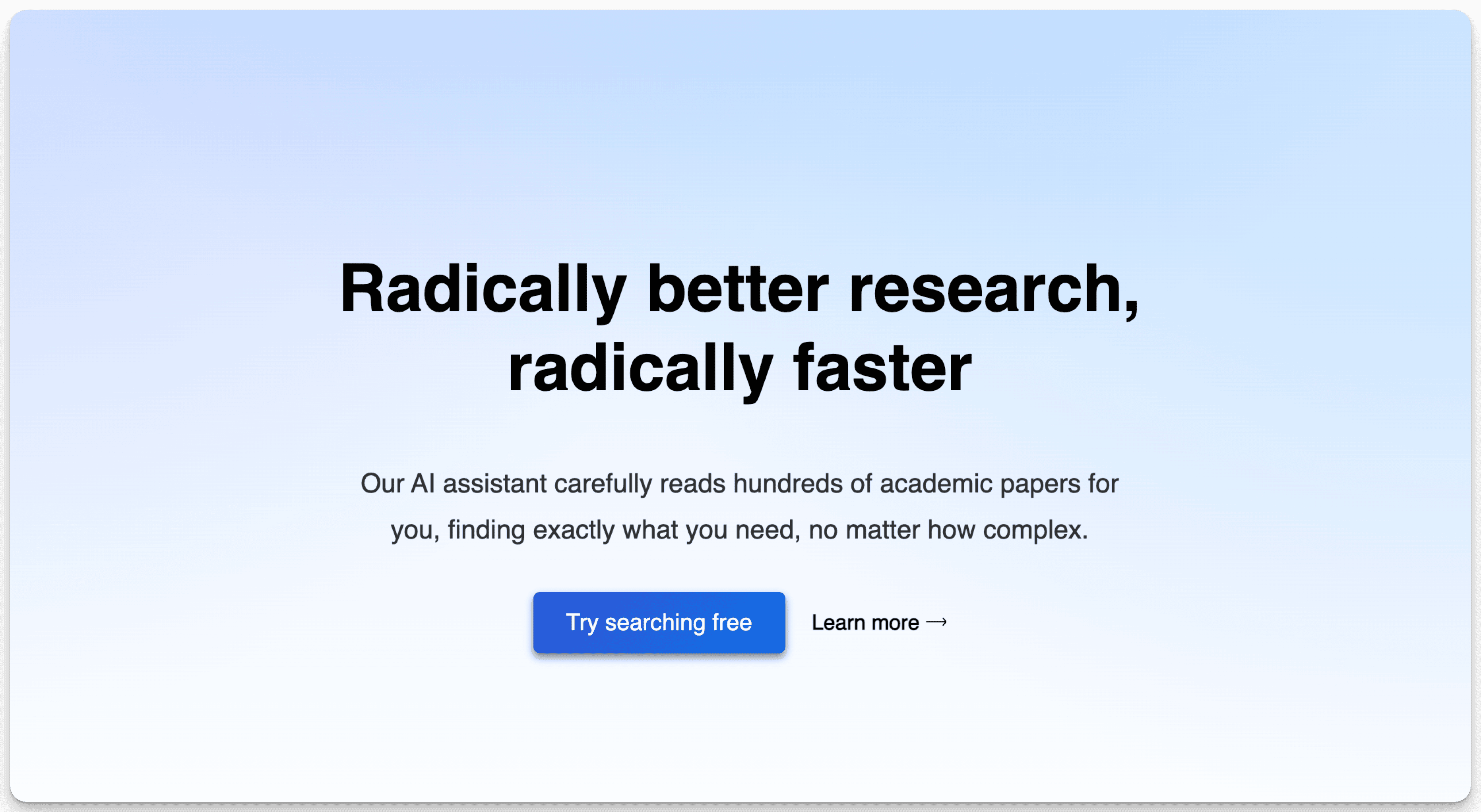
Undermind is an AI research assistant that helps in discovering and synthesizing academic papers. It is built by MIT researchers, read through hundreds of papers to find exactly what you need, making the research process 10 to 50 times faster than traditional methods. The platform focuses on relevance rather than just citation counts, ensuring you don't miss critical studies in your field.
Unlike traditional search engines, it goes beyond simple keyword matching to understand the context of your research needs. The platform's AI technology synthesizes key findings from different sources into coherent summaries, helping you quickly grasp the essential aspects of your research area without manually sifting through countless papers.
Pros:
AI-powered search provides highly relevant results quickly
Cross-disciplinary integration supports diverse research needs
Generates thematic summaries of research findings
Focused reading recommendations save review time
Automated literature synthesis capabilities
Comprehensive coverage across academic disciplines
Cons:
Limited to digitized academic papers
May require verification of search results
Pricing: $20/month
10. R Discovery
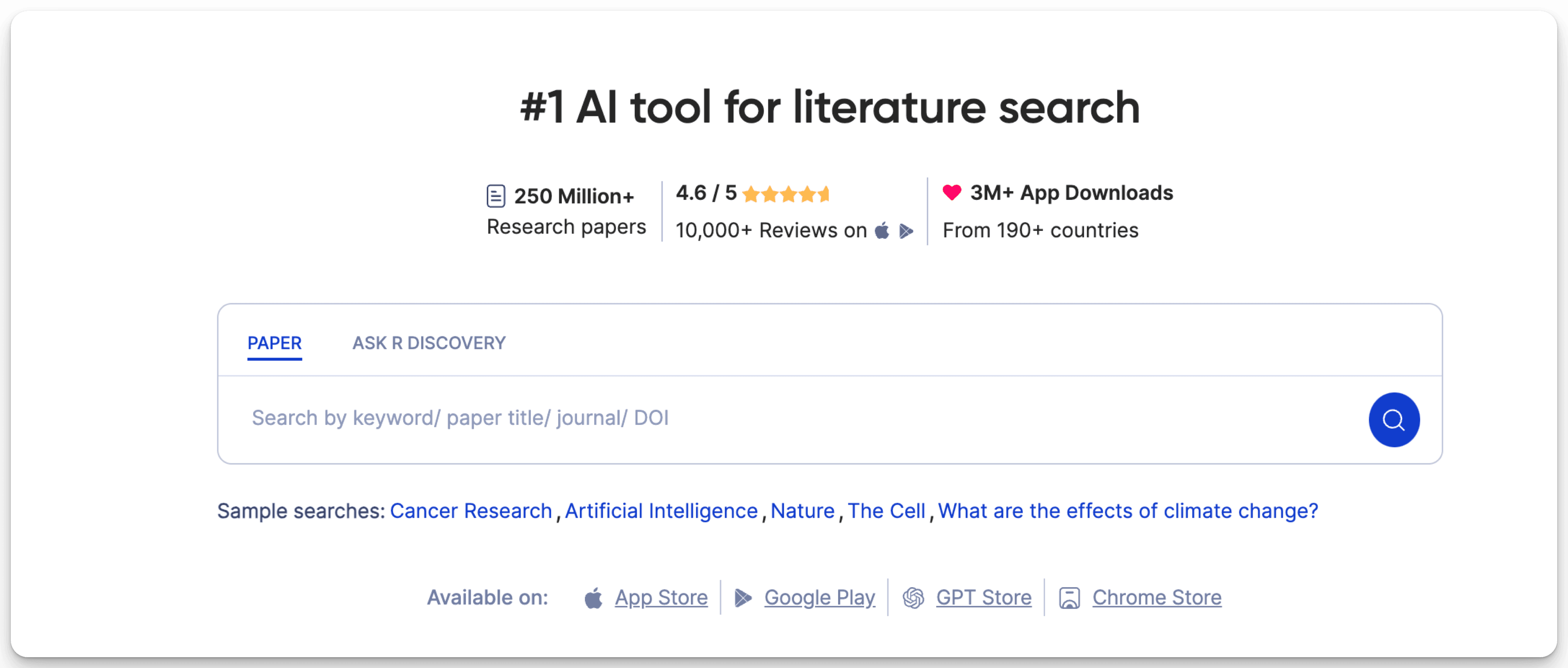
R Discovery stands out with its vast database and smart search capabilities. The platform's integration with multiple paper sources ensures you don't miss critical research during your review process. With features like AI-powered paper summaries and highlights, you can quickly evaluate papers' relevance to your research.
When conducting systematic literature reviews, R Discovery acts as your comprehensive research search engine with access to over 250 million research papers. This powerful platform combines extensive database coverage across journals, conference papers, pre-prints, and patents with AI-powered features to help you find relevant research quickly.
Pros:
Access to 250 million+ research papers across multiple sources
AI-powered summaries and highlights for quick paper evaluation
Audio paper conversion for efficient research consumptio
Daily updates with 5000+ new papers
Open access to 40 million+ papers
Real-time paper updates and notifications
Cons:
Search refinement may be needed for specific topics
Limited collaboration features
Pricing: $5/month
Conclusion
In 2026, having the right and the Best AI Tools for Systematic Literature Review can significantly streamline literature reviews, help with research synthesis, and enable faster comprehension of complex academic papers.
Among these tools, Elephas is the standout choice for researchers, with its Super Brain feature for organizing research materials, secure offline capabilities, and robust handling of sensitive academic content.
Since different researchers have varying needs, if Elephas's Mac-only limitation is an issue, alternatives like Consensus for quick paper summaries, Research Rabbit for visual exploration, or Scite.ai for citation analysis can be excellent choices.
Why not explore these AI tools today? And discover which one best aligns with your research workflow.
FAQs
1. How much do AI literature review tools typically cost?
Most AI literature review tools range from $5-20/month, with some offering free versions. Premium features like offline access and advanced analysis typically require paid subscriptions.
2. How secure are these AI tools for handling research data?
Security varies by tool. Many offer local storage, encrypted data handling, and offline access. Always check privacy policies and data handling practices before uploading sensitive research.
3. What technical requirements do I need to use these tools?
Most tools require a stable internet connection and modern web browsers. Some are platform-specific (like Mac-only), while others work across all devices through web interfaces.
4. How accurate are AI-generated paper summaries?
AI summaries typically achieve 85-90% accuracy but should be verified against source materials. They're best used as initial screening tools rather than final research references.

Comments
Your comment has been submitted